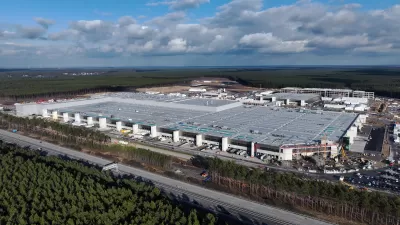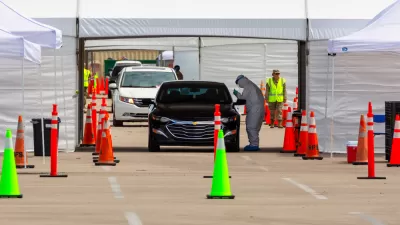From USC to Columbia University, "town and gown" collaborations regarding university expansion have proven to benefit all parties, writes planning activist and affordable housing developer Murtaza Baxamusa.

The multiplier impact of universities on local economies has been shown to be virtually unparalleled. This is particularly important given how cities are often pitted against each other to attract businesses that promise a high number of jobs. As has recently been highlighted by the Amazon HQ2 competition, cities compete with each other to give away public land and tax subsidies to attract major employers. Sometimes, these "incentive packages" result in a net loss to local taxpayers. In all cases, cities are rewarded for minimizing funding of everything from education, to parks, to life & safety services. In contrast, universities are rarely as aggressive as private for-profit enterprises in seeking local subsidies, and in any case, are highly unlikely to move to another city to obtain subsidies. Additionally, universities help support a wide range of private enterprises, from low skilled services, to everyday supplies, to skilled trades, to high-tech and life-sciences start-ups.
Nevertheless, when universities seek to expand, it can be traumatic and damaging for adjacent neighborhoods and residents, particularly if community needs and goals are not given a voice in the matter. San Diego planning activist and affordable housing developer Murtaza Baxamusa writes about the topic in the context of an upcoming voter referendum concerning a sale of the Charger Stadium land to San Diego State University for expansion. Baxamusa references several recent university expansions to review the tensions and the resolutions. He opines that full collaboration and engagement, memorialized in a community benefits agreement, optimizes the expansion for both parties. He references the recent USC expansion as an example of the items that can be addressed in such agreements. For more detailed information, please see the source article.
FULL STORY: University expansions create opportunity for community benefits

Planetizen Federal Action Tracker
A weekly monitor of how Trump’s orders and actions are impacting planners and planning in America.

San Francisco's School District Spent $105M To Build Affordable Housing for Teachers — And That's Just the Beginning
SFUSD joins a growing list of school districts using their land holdings to address housing affordability challenges faced by their own employees.

The Tiny, Adorable $7,000 Car Turning Japan Onto EVs
The single seat Mibot charges from a regular plug as quickly as an iPad, and is about half the price of an average EV.

With Protected Lanes, 460% More People Commute by Bike
For those needing more ammo, more data proving what we already knew is here.

In More Metros Than You’d Think, Suburbs are Now More Expensive Than the City
If you're moving to the burbs to save on square footage, data shows you should think again.

The States Losing Rural Delivery Rooms at an Alarming Pace
In some states, as few as 9% of rural hospitals still deliver babies. As a result, rising pre-term births, no adequate pre-term care and "harrowing" close calls are a growing reality.
Urban Design for Planners 1: Software Tools
This six-course series explores essential urban design concepts using open source software and equips planners with the tools they need to participate fully in the urban design process.
Planning for Universal Design
Learn the tools for implementing Universal Design in planning regulations.
Smith Gee Studio
City of Charlotte
City of Camden Redevelopment Agency
City of Astoria
Transportation Research & Education Center (TREC) at Portland State University
US High Speed Rail Association
City of Camden Redevelopment Agency
Municipality of Princeton (NJ)





























